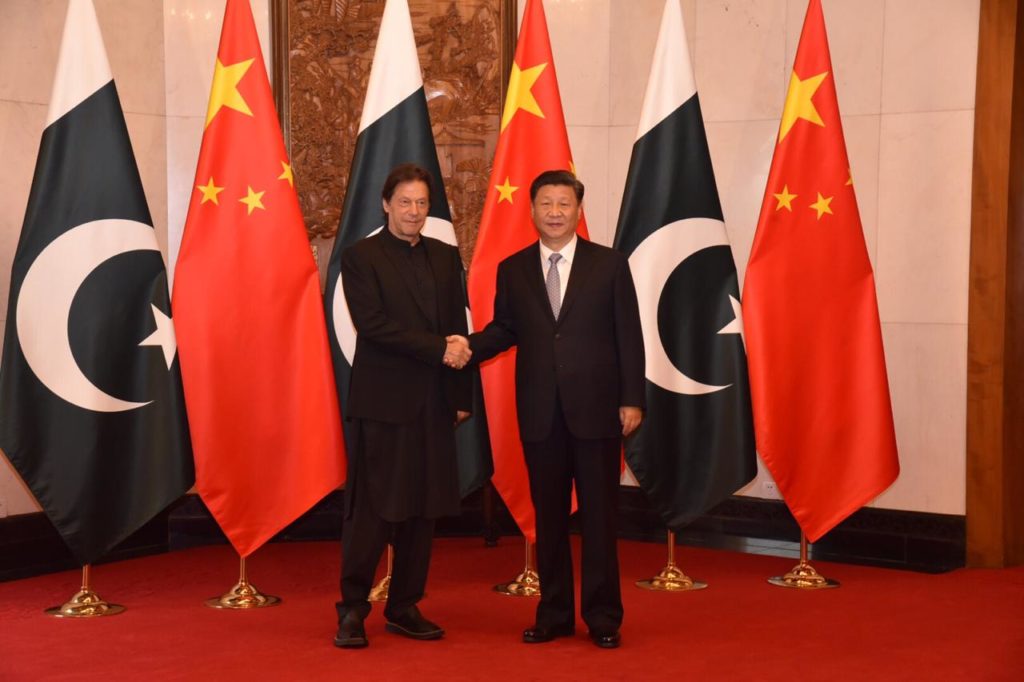
While video-chatting with an American friend from my home in Pakistan, I excitedly told her that I got the second dose of the Sputnik V COVID-19 vaccine. She incredulously asked what Sputnik was. I immediately realized that we lived in two different worlds; hers, one of Moderna and Pfizer, and mine of Sputnik and Sinopharm.
Pakistan, like many other countries in the world, did not receive any vaccines from the United States, or any other Western country, until May 2021. Pakistan had also signed up for the United Nations-led COVAX program, which was supposed to deliver its first consignment of vaccines in March 2021. However, the vaccines never arrived due to a “supply shortage”. The first delivery of COVAX vaccines arrived on May 8 – Pakistan received 1.23 Million doses of the AstraZeneca vaccine two months after they were originally supposed to arrive; two months at a time when a deadly pandemic was wreaking havoc around the country. While Pakistan was struggling to acquire vaccines, the United Kingdom vaccinated over a quarter of its total population, the United States over 35 percent, and Israel over half of its population. This inequity in vaccine distribution led the Director-General of the World Health Organization to describe the situation as nothing short of “grotesque”. Due to the West’s inability to support under-resourced countries during this pandemic, Pakistan has relied on China and Russia for its vaccine supplies.
Pakistan’s Slow Vaccination Drive Drags On Without the United States
For the first phase of its vaccination drive, Pakistan administered around 3.3 million doses of Chinese-manufactured Sinopharm, CanSino, and Sinovac vaccines. Out of these 3.3 million doses, China donated 1.2 million doses to Pakistan in February, enabling Pakistan to ramp up its initial vaccination drive. Russia also stepped in to aid Pakistan’s vaccination efforts. The Russian Sputnik V vaccine was made available to the public on April 3. Although it was administered by the private sector at an exorbitant rate of USD $80—four times higher than its global price— it nonetheless bolstered Pakistan’s vaccination drive.
Due to the West’s inability to support under-resourced countries during this pandemic, Pakistan has relied on China and Russia for its vaccine supplies.
Together these vaccines kickstarted a slow vaccination drive—only 1.9 percent of the Pakistani population has been vaccinated thus far. This slow vaccination rate can be attributed to vaccine hesitancy. However, Pakistan’s sluggish vaccination drive is largely the result of a lack of vaccines. The dearth of U.S.-manufactured vaccines and the hoarding of vaccines by Western countries has not gone unnoticed in Pakistan.
United States’ Decreasing Popularity
In recent history, skepticism about the United States’ role in Pakistan has increased due to the former’s Afghanistan withdrawal strategy and the strengthening of U.S.-India ties. This pandemic cemented China’s all-encompassing role in Pakistan. Its vaccine diplomacy efforts in the country clarified its sustained support for its “iron brother.” The United States’ striking absence as a global leader during the pandemic, especially its refusal to share its plentiful supplies of vaccines with developing nations, has secured China’s position as the chief supporter of under-resourced countries such as Pakistan. Furthermore, effective vaccine diplomacy has also resurged Russia’s popularity in the country; Pakistan and Russia recently agreed to boost military cooperation. It seems as if the United States’ top two adversaries have sought to fill its leadership void during the pandemic.

China’s increasing influence and Russia’s resurgence in Pakistan should be a worrying sign for the Biden administration, which has made inroads in the South Asian region to curb China’s influence. The delay in lending support to India as it struggled to contain the virus cost the Biden administration heavily as it faced widespread criticism from across the country. Additionally, the administration’s decision to send supplies to India and not to other countries struggling in the region, such as Pakistan and Nepal, is bound to have long-term consequences on the United States’ partnerships in South Asia. Many regional countries have looked to China for vaccine support. The pandemic has made the Pakistan-China versus US-India political and security competition even more apparent.
Conclusion
On May 5, in a rare moment of global leadership for the United States, President Biden lifted international patent protections to allow vaccine-strapped countries to manufacture vaccines themselves—a provision that could significantly aid affected nations. Although this is an important step in the right direction, it would be naïve to assume that the developing world would receive this decision with open arms. Despite the magnanimity of the measure, it might be too late to win the Pakistanis over. The United States and other Western nations should have realized that hoarding vaccines at such a crucial time is not only inhumane but also a sign of tactless diplomacy. The developing countries are taking note of the lack of global leadership from the West during the pandemic and turning to alternatives, namely China and Russia, to seek support. Such relationships built on vaccine diplomacy are bound to impact the United States’ position in the post-pandemic world.
The Biden administration should reorient its relationship with Pakistan from security-centric to economic-centric to aid Pakistan’s post-pandemic economy.
The Biden administration should rethink its decision to send medical supplies to India alone and extend a helping hand to other countries struggling in the region. The United States has excess vaccines and the capacity to manufacture lifesaving medical equipment, which could be crucial for countries such as Pakistan and Nepal in containing the harm caused by the pandemic. Furthermore, to undo some of the damage, the Biden administration should reorient its relationship with Pakistan from security-centric to economic-centric to aid Pakistan’s post-pandemic economy. Despite the lack of effective vaccine diplomacy, complete isolation from the United States could lead to a potentially harmful increase in dependency on China. Thus, Pakistan needs to sustain cordial ties and continue to encourage U.S. foreign investment.
I told my friend about the lack of vaccine supplies in Pakistan. She responded that the United States has vaccinated, at the time, over a third of its population. We silently acknowledged the United States’ delayed and detrimental response to the global crisis and changed the topic.
***
Image 1: International Monetary Fund via Flickr
Image 2: Government of Pakistan via Twitter


